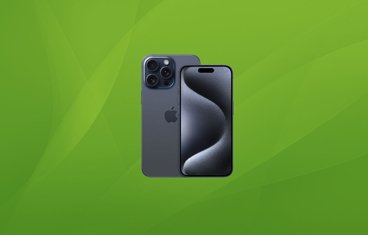Acer and former CEO trade barbs over Apple's iPad threat
Lanci resigned as CEO at the end of March, with several reports suggesting at the time that the adverse impact from Apple's iPhone and iPad successes was a "key reason" for his departure. According to IDC, Acer's U.S. PC shipments dropped by a 42.1 percent in the March quarter, opening an opportunity for Apple to overtake it with its 9.6 percent year over year growth in Mac sales.
In an interview with the Mobilized blog on Monday, Lanci blamed Acer for being too slow to react to the threat from the iPad.
"At that time, I already saw if we want to become a major player in this new world, we needed to do certain investments, mainly on software and on smartphones and tablets, on touch,†Lanci said. He had pressed the company to expand from 300 or 400 engineers to 1,000 engineers, focusing more on software and hardware integration.
The number of engineers Lanci required could not be found in Taiwan, so he suggested looking elsewhere: "China or India or even the U.S. or Europe, wherever you can find software resources, software know-how." However, Lanci said Acer was resistant to the change because it might result in a "de-Taiwanization" of the company.
“I said, ‘Look, it is not de-Taiwanization,’†he said. “It is just globalization. If we want to be in the top three (PC makers) in the next three to five years, we need to be a global company and we need to leverage resources wherever they are.â€
Lanci admitted that the company was late in achieving its smartphone and tablet vision, but attributed the delay to a lack of resources, rather than his own shortcomings. "People after a few years will decide who was wrong,†he said, noting that the company had grown from a $10 billion company to a $20 billion one during his eight-year tenure.
Lanci also said Acer needed to do more to prepare for the rise of the "tablet thin and light, like the current iPad 2," the report noted. According to Lanci, Apple is clearly winning and Samsung and HP may be doing the right things, but the bulk of the PC industry faces a similar position as Acer.
For its part, Acer fired back at Lanci's comments on Wednesday, in a statement asserting that "de-Taiwanization" had never been the issue, DigiTimes reports. The company instead raised the issue whether Lanci had been "able to sustain healthily and long-term development for the company."
The Taiwanese PC maker pointed to smartphone failures under Lanci and the resulting inventory pile-up and accounts receivables problems, according to the report.
"Lanci had also failed to come out with explanations earlier when the company was unable to deliver results that matched up with its targets in two consecutive quarters from October 2010 to March 2011," Acer noted.
Acer took issue with Lanci's claim that the company's capabilities weren't up to the task of building a tablet, highlighting instead the fact that its Android 3.0 tablet PCs trailed behind only Apple and Motorola when they began shipping.
Last year, Acer chairman JT Wang predicted that the market share of the iPad would drop from 100 percent to between 20 percent and 30 percent as competitors entered the market. However, after sales and profits slowed at the end of 2010, founder Stan Shih announced that the company would overhaul operations to more closely emulate Apple's strategy.
Acer had previously pursued a volume strategy, "striving to become the world`s largest PC vendor, in the belief that the goal can help it achieve economy of scale and garner higher margin," according to one report. However, the race to the bottom with the rise of the netbook resulted in vanishing profit margins, which disappeared even further as Apple's iPad began to eat into netbook sales.
The PC industry "should not single-mindedly pursue volume growth, and should extend its operation to the field of service, just like what Apple has done," Shih said.
 Josh Ong
Josh Ong










 Chip Loder
Chip Loder
 Andrew Orr
Andrew Orr
 Marko Zivkovic
Marko Zivkovic
 David Schloss
David Schloss

 Malcolm Owen
Malcolm Owen

 William Gallagher
William Gallagher







